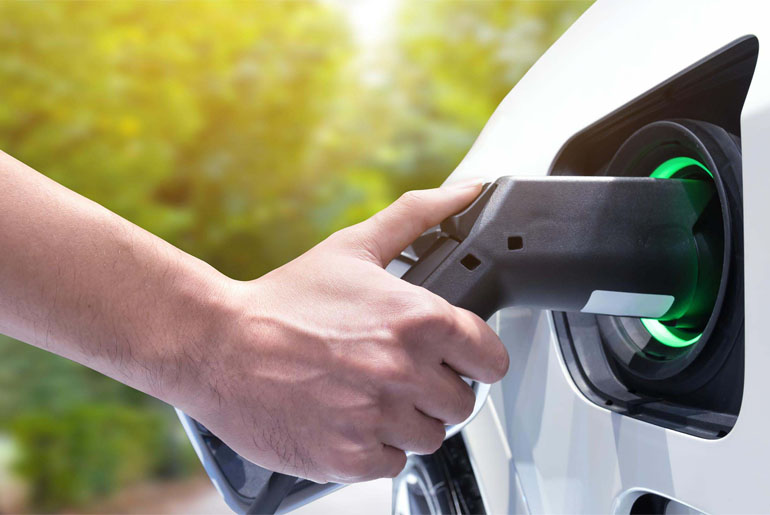The transition to electric vehicles (EVs) is transforming the commercial transportation sector, offering significant benefits such as reduced emissions, lower operating costs, and enhanced sustainability. However, managing a fleet of commercial EVs presents unique challenges, particularly in the realm of charging solutions and infrastructure. Effective fleet management and strategic charging solutions are crucial for optimizing the performance and efficiency of commercial EV fleets. This article explores key considerations, innovative solutions, and best practices for managing and charging commercial EVs.
Understanding the Challenges
-
Charging Infrastructure
One of the primary challenges for commercial EV fleets is establishing a reliable and efficient charging infrastructure. Unlike individual consumers who may charge at home or public stations, commercial fleets often require dedicated charging facilities to accommodate the larger number of vehicles and ensure timely operations.
-
Range and Downtime
Commercial EVs, particularly those used for delivery and logistics, are often required to operate over long distances or with tight schedules. Ensuring that vehicles have sufficient range and minimizing downtime for charging are critical concerns for fleet operators.
-
Cost Management
The initial investment in EVs and charging infrastructure can be substantial. Fleet operators must balance these costs with the long-term savings on fuel and maintenance. Additionally, managing energy costs and optimizing charging schedules to take advantage of lower rates or incentives can be complex.
-
Integration with Operations
Commercial fleets need to integrate EVs seamlessly into their existing operations, including route planning, vehicle scheduling, and maintenance. This requires sophisticated fleet management systems that can handle the unique requirements of electric vehicles.
Strategic Charging Solutions
-
Dedicated Charging Stations
Setting up dedicated charging stations at fleet depots or facilities is essential for efficient fleet management. These stations can be designed to handle multiple vehicles simultaneously and can be equipped with high-power chargers to reduce charging times. Fleet operators should consider the capacity of their electrical infrastructure and plan for future expansion as the fleet grows.
-
Smart Charging
Smart charging solutions can optimize energy use and reduce costs. These systems can schedule charging times based on vehicle usage patterns, take advantage of off-peak electricity rates, and manage the load on the electrical grid. Smart chargers can also provide real-time data on charging status, energy consumption, and battery health.
-
Depot Optimization
Efficiently managing charging within a fleet depot involves more than just installing chargers. It requires careful planning of charging station placement, electrical capacity, and vehicle flow to ensure that vehicles are charged quickly and ready for their next trip. Implementing software solutions that coordinate charging with vehicle schedules can further enhance efficiency.
-
Public and Fast Charging Networks
For fleets that operate outside of a central depot or require longer routes, access to public and fast-charging networks is crucial. Partnering with charging network providers and utilizing fast chargers along key routes can help ensure that vehicles can quickly recharge during their journeys.
-
Battery Management
Effective battery management is key to maintaining the performance and longevity of commercial EVs. This includes monitoring battery health, ensuring proper charging practices, and implementing predictive maintenance to address issues before they become critical. Battery management systems can provide insights into battery performance and help optimize charging practices.
Fleet Management Best Practices
-
Data-Driven Decisions
Leveraging data and analytics is vital for optimizing fleet management. Advanced telematics and fleet management software can track vehicle performance, energy consumption, and charging patterns. This data helps fleet operators make informed decisions about route planning, energy use, and maintenance schedules.
-
Training and Support
Ensuring that fleet managers and drivers are trained in the use of EVs and charging infrastructure is essential for smooth operations. Training programs should cover topics such as vehicle operation, charging procedures, and basic maintenance. Ongoing support and updates can help address any issues and keep the fleet running efficiently.
-
Sustainability and Reporting
Commercial fleets are increasingly focusing on sustainability and reporting their environmental impact. Implementing EVs and charging solutions can significantly reduce greenhouse gas emissions and contribute to corporate sustainability goals. Fleet operators should track and report on key metrics such as energy use, emissions reductions, and cost savings to demonstrate the benefits of their EV strategy.
-
Partnerships and Incentives
Building partnerships with charging infrastructure providers, energy companies, and local governments can provide access to valuable resources and incentives. Many regions offer grants, rebates, or tax incentives for installing EV charging infrastructure or adopting electric vehicles. Engaging with these programs can help offset costs and support the transition to electric mobility.
-
Future-Proofing
As technology continues to evolve, fleet operators should plan for future developments in EV and charging technology. This includes staying informed about advancements in battery technology, charging speeds, and smart grid integration. Future-proofing strategies can help ensure that the fleet remains competitive and adaptable to changing market conditions.
Conclusion
The shift to electric vehicles presents a significant opportunity for commercial fleets to reduce costs, enhance sustainability, and improve operational efficiency. However, effective fleet management and strategic charging solutions are essential for realizing these benefits. By investing in dedicated charging infrastructure, implementing smart charging and battery management practices, and leveraging data-driven insights, fleet operators can overcome the challenges associated with managing and charging commercial EVs. As the adoption of electric vehicles continues to grow, these strategies will play a crucial role in shaping the future of commercial transportation and contributing to a greener, more sustainable future.

